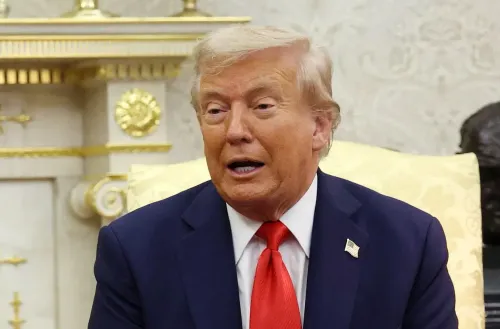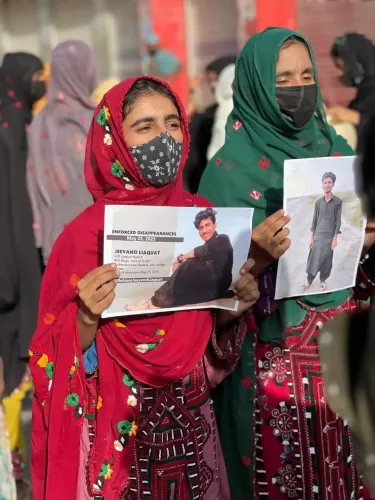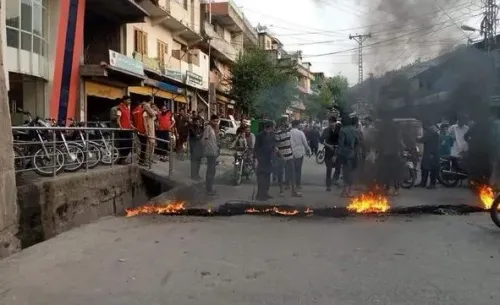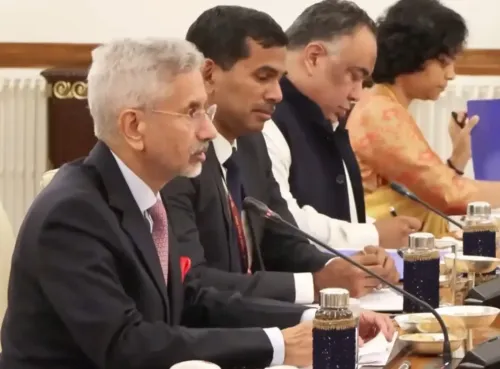How Did Bangladesh's Awami League Remember the 2004 Grenade Attack?

Synopsis
Key Takeaways
- Awami League commemorates the 2004 grenade attack.
- 24 lives were lost, and over 500 were injured.
- Allegations of collusion with foreign elements.
- Legal ramifications have been contentious.
- Call for unity against extremist forces.
Dhaka, Aug 21 (NationPress) The Awami League Party of Bangladesh reflected on the 2004 grenade attack during its anti-terrorism peace rally at Bangabandhu Avenue in Dhaka, labeling it a 'horrific and disgraceful' event in the nation's political narrative, as it marks 21 years since that tragic day.
During this brutal assault, multiple military-grade grenades were launched at the gathering, resulting in the deaths of 24 Awami League leaders and activists, with over 500 others left permanently disabled.
The Awami League stated that on August 21, 2004, this savage attack was executed under the direct support of the then Bangladesh Nationalist Party-Jamaat-e-Islami coalition government.
The objective, they allege, was to assassinate the Awami League President and then Leader of the Opposition, Sheikh Hasina, aiming to 'destroy' the independence, democracy, and the 'spirit' of the 1971 Liberation War.
The party asserted that the grenades used and other evidence indicate the involvement of Pakistan and its local agents in the attack.
According to a statement from the Awami League, 'The joint efforts of the defeated forces of 1971, both domestic and foreign, aimed to eliminate the pro-Liberation forces led by the Awami League, turning Bangladesh into a militant, failed state in line with Pakistani ideology, and suppressing the democratic aspirations of our people.' Fortunately, Awami League President Sheikh Hasina survived that day, keeping the hope alive.
The party criticized the Muhammad Yunus-led interim government, claiming that 'the illegal usurper, killer-fascist Yunus clique is now steering Bangladesh in the same Pakistani ideological direction as the embodiment of those extremist communal militant forces.'
After a lengthy 14 years, in 2018, the Bangladeshi Court issued its verdict in the August 21 grenade attack case, sentencing 19 individuals to death, and 19 others, including chief planner BNP leader Tarique Rahman, to life imprisonment, along with various prison terms for 11 police and army officials.
However, the Awami League contended that after Yunus assumed power 'unconstitutionally', under his direct orders, a High Court bench rendered a farcical verdict, acquitting all convicted criminals.
'This will remain as another disgrace in the history of the nation, and just as heinous as the grenade attack itself was the shameful acquittal.' The party reiterated its commitment to democracy, justice, and human rights, paying homage to the lives lost in the attack and expressing sympathy for the injured.
Finally, it urged the citizens of Bangladesh to unite against the 'extremist communal militants' and their affiliates—BNP, Jamaat, and Yunus—to restore democracy in the nation.









